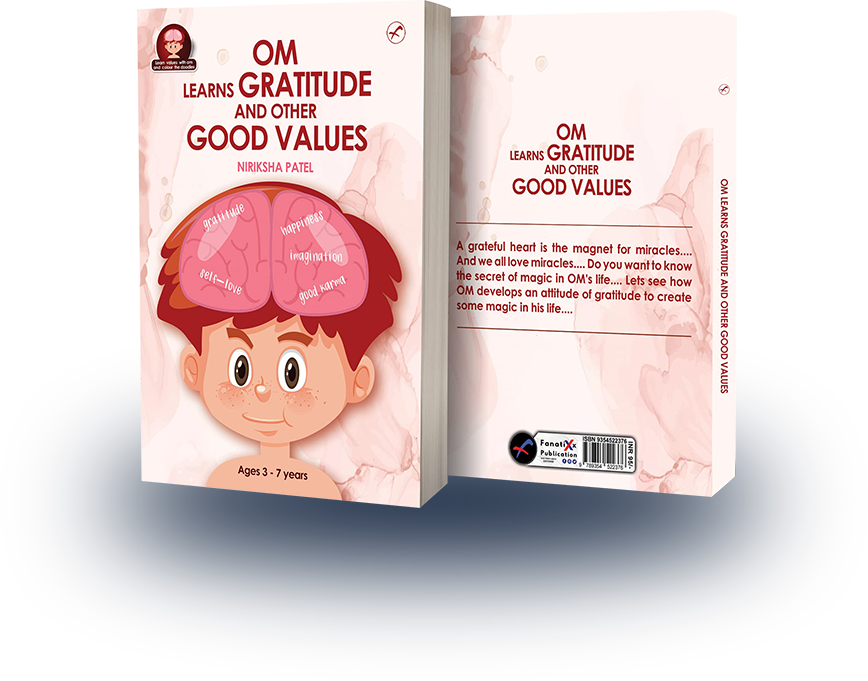Table of Contents[Hide][Show]
Introduction
Have you ever found yourself fuming over the dishes left in the sink again, even though your partner promised to take care of them?
Or maybe it’s the way they always seem to forget important dates, like your anniversary or the family get-together you’ve been planning for weeks.
It starts small, doesn’t it?
A tiny niggle here, a small disappointment there. But before you know it, these little grievances start to pile up, turning into a mountain of resentment that casts a long shadow over your marriage.
You’re not alone in this. Every couple goes through ups and downs, and resentment is a common passenger on the journey of marriage.
But here’s the good news: it doesn’t have to be a permanent fixture in your relationship.
So, how do you start this process?
How to let go of resentment In Marriage that seem to have taken root in your heart?
It might seem like a daunting task, but with a bit of understanding, empathy, and open communication, it’s definitely achievable.
Let’s explore together how to release the grip of resentment and pave the way for more joyful, fulfilling days with your partner.
Understanding Resentment in Marriage
let’s break it down with a story you might find familiar.
Imagine two friends, Priya and Raj, married for a few years now. Raj loves playing weekend cricket with his buddies, something he’s done since college.
Priya, on the other hand, looks forward to spending weekends together, maybe trying out a new brunch spot or just lounging at home.
They’ve talked about it, and Raj always promises to keep his next weekend free. Yet, almost every Saturday, he’s out the door with his cricket bag, leaving Priya feeling sidelined and forgotten.
This isn’t just about missed brunches or quiet weekends at home. It’s about Priya feeling like her wishes and feelings are always on the back burner, taking a backseat to Raj’s cricket.
And for Raj? He might not even realize the depth of Priya’s feelings, seeing his weekend cricket as a harmless habit, not a statement on their relationship’s priority.
The resentment starts small, like a seed. Priya feels ignored, her needs unimportant. If this keeps up, with Raj overlooking Priya’s feelings and Priya stewing in silence (or occasional outbursts), that seed of resentment grows.
It’s fed by every forgotten promise and every lonely weekend until it’s a giant tree, casting a shadow over their marriage.
It’s no longer just about cricket or weekends; it becomes a symbol of all the ways they feel let down or unvalued by each other.
See, resentment in marriage is like that. It starts with something specific but can grow into a general feeling of dissatisfaction or disconnection.
And like in Priya and Raj’s case, the key to tackling it is noticing it early, understanding where it’s coming from, and talking about it openly.
Check out: 10 Ways To Heal Emotions From Painful Relationships
Signs You’re Holding onto Resentment
Here are some telltale signs that resentment might be taking hold in your relationship, along with examples to paint a clearer picture.
Feeling Irritable Over Small Things
Example: If your partner forgetting to replace the toilet paper roll for the umpteenth time makes you more upset than it really should, it might not be about the toilet paper at all. It’s a sign something deeper is bothering you.
Example: When the thought of talking about your day with your partner feels more exhausting than exciting, it could indicate a wall built up by unresolved feelings.
Avoiding Time Together
Example: If you find yourself making plans to avoid being home or alone with your partner, preferring the company of friends or even solitude, it’s a signal you’re distancing yourself to protect your emotions.
Playing the Blame Game
Example: You blame your partner for your unhappiness in the relationship, focusing on their actions or inactions as the root of all problems, without acknowledging your own role or the complexities of the situation.
Fantasizing About a Life Without Your Partner
Example: Catching yourself daydreaming about how life could be without your partner, not just as a fleeting thought, but as a recurrent escape fantasy, shows deep-seated discontent.
Feeling Lonely Even When You’re Together
Example: Sitting right next to your partner but feeling miles apart, as if there’s an invisible barrier between you, indicates a loss of emotional connection.
Holding onto Past Arguments
Example: Bringing up past mistakes or arguments during unrelated discussions shows you haven’t fully moved on or forgiven those trespasses.
Reluctance to Make Future Plans
Example: Hesitating to plan future activities or big life events together because you’re unsure if the issues between you will ever resolve.
Also read: Self Healing Power – Heal Your Body, Emotions & Toxic Relationship
The Consequences of Letting Resentment Linger
You start feeling like roommates, not partners.
Arguments become the new normal– Suddenly, it feels like everything’s a trigger. Who knew deciding what to watch on TV could spark World War III?
Intimacy? What intimacy?– When resentment’s in the air, feeling close or wanting to be physically intimate can take a backseat. It’s tough to feel romantic when you’re holding onto grudges.
You might start keeping score– It becomes about who’s done more chores, who’s made more sacrifices, or who’s the bigger villain.
Happiness takes a hit– When there’s so much negative energy, finding joy in the little things becomes harder. Your overall happiness and mental health can really suffer.
Communication breaks down– It gets harder to talk about anything without it turning into a debate. And sometimes, you might just stop talking altogether because, what’s the point?
Trust erodes– Resentment can make you doubt each other’s intentions, making trust a rare commodity.
It can affect your health– Yep, all that stress and negativity aren’t just bad for your relationship; they’re bad for your heart, sleep, and stress levels, too.
Also read: 4 Easy Tips To Heal All Your Emotional Hurt
How To Let Go Of Resentment In Marriage?
Letting go of resentment in marriage isn’t like flipping a switch, but more like gardening. You’ve got to tend to it regularly, pull out the weeds, and make sure you’re planting the right seeds. Here are some down-to-earth strategies to help you start turning over a new leaf:
Talk It Out
What to Do: Find a good time when both of you are calm and ready to chat. Express your feelings without blaming, using “I feel” statements.
Example: Instead of saying, “You never listen to me,” try “I feel hurt when I don’t feel heard in our conversations.”
Listen to Understand, Not to Respond
What to Do: When your partner is sharing, listen to understand their perspective, not just to rebuttal.
Example: If they explain why they forgot to do something, instead of jumping to conclusions, try to see things from their shoes. Maybe they were swamped with work or forgot in the hustle of daily life.
Practice Forgiveness
What to Do: Forgiveness isn’t about saying what happened is okay, but about choosing to let go of holding it against them for your peace.
Example: If a past argument is causing ongoing resentment, decide to forgive, meaning you won’t keep bringing it up in future disagreements.
Create New Positive Experiences
What to Do: Intentionally plan activities or small moments together that can build new, positive memories.
Example: Have a weekly date night, even if it’s just cooking a new recipe together at home or watching a movie.
Show Appreciation
What to Do: Focus on the positives. Regularly express appreciation for the big and small things your partner does.
Example: A simple “Thank you for making coffee this morning” can go a long way in feeling valued and loved.
Seek Support
What to Do: Sometimes, an outside perspective can be invaluable. Consider couples therapy or marriage counseling.
Example: Meeting with a counselor doesn’t mean your marriage is failing—it means you’re committed to making it work by learning new communication strategies and understanding each other better.
Self-care
What to Do: Take care of your emotional and physical well-being. When you feel good about yourself, you’re in a better position to address relationship issues.
Example: Regularly engage in activities that you enjoy and that make you feel relaxed, whether that’s yoga, reading, or spending time with friends.
Set Boundaries
What to Do: Clearly communicate your needs and limits in a respectful way.
Example: If you need some alone time to recharge, express that need without making it sound like a rejection.
When To Consider Counseling Or Therapy?
- You can’t talk without arguing.
- Trust has been damaged or lost.
- Same fights, no solutions.
- Feeling disconnected from each other.
- Struggling to adapt to big changes together.
- Mental health issues affect the relationship.
- Physical closeness has dwindled.
- Separation or divorce seems like an option.
- Relationship issues spill into work or friendships.
- Wanting a stronger, deeper connection.
Practical Exercises to Release Resentment
Memory Lane Mapping: Draw a timeline of your relationship, marking both the highs and the lows. Discuss how you’ve navigated challenges together and how you can use those experiences to address current resentments.
Gratitude Graffiti: Create a shared journal or a wall space where both of you can write down things you appreciate about each other. This visual reminder can shift focus from resentment to gratitude.
The Role Reversal Ritual: Spend a day or a few hours pretending to be each other, mimicking habits and routines. This playful exercise can foster empathy and understanding.
The Unsent Letter: Write a letter to each other expressing all your feelings, including resentment, but don’t send it. After writing, have a discussion about the contents. This can be a cathartic way to release pent-up emotions.
The Forgiveness Fire: Write down resentments on pieces of paper and safely burn them in a fire pit or a shredder. This symbolic act can help let go of lingering negative feelings.
The Resentment Relay: Set a timer for uninterrupted speaking, allowing each person to express their feelings without interruption or judgment. Then, switch roles. This ensures both partners feel heard.
Dream Day Design: Plan your perfect day together without any limitations. This fun activity helps reconnect with each other’s desires and dreams, reducing the focus on past grievances.
The Appreciation Alarm: Set random alarms throughout the week as a reminder to express appreciation for each other. This builds a habit of noticing the positive aspects of your partner.
The Emotional Escape Room: Create a list of tasks or puzzles that represent different resentments or issues in your relationship. Solving them together in a gamified way can open up new avenues for communication and understanding.
The Connection Quest: Challenge each other to a ‘quest’ where you must find or do something that reminds you of a happy time in your relationship. Share your findings and the memories they evoke, reinforcing positive connections.
Conclusion
And that’s how to let go of resentment in marriage. It might seem like a tough journey, but remember, the best journeys are taken together.
By trying out these steps and exercises, you’re not just moving past resentment; you’re building a stronger, happier relationship.
It’s all about taking it one day at a time, talking, listening, and remembering why you chose each other in the first place.
So, hold hands, look forward, and take that next step together. Your marriage is a beautiful story that’s still being written, and every effort you make turns the page to a brighter chapter.
You’ve got this, together!


 How To Be Confident Yet Humble? Practical Tips
How To Be Confident Yet Humble? Practical Tips